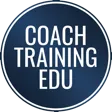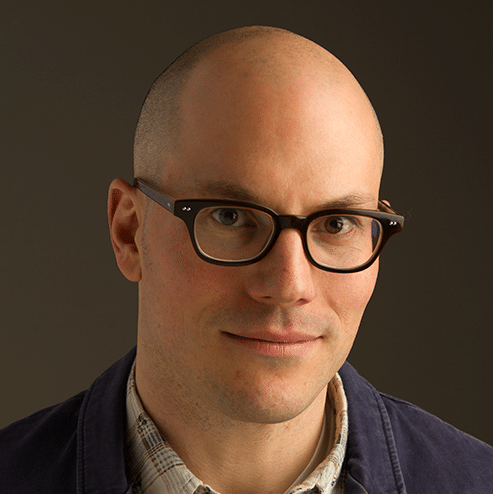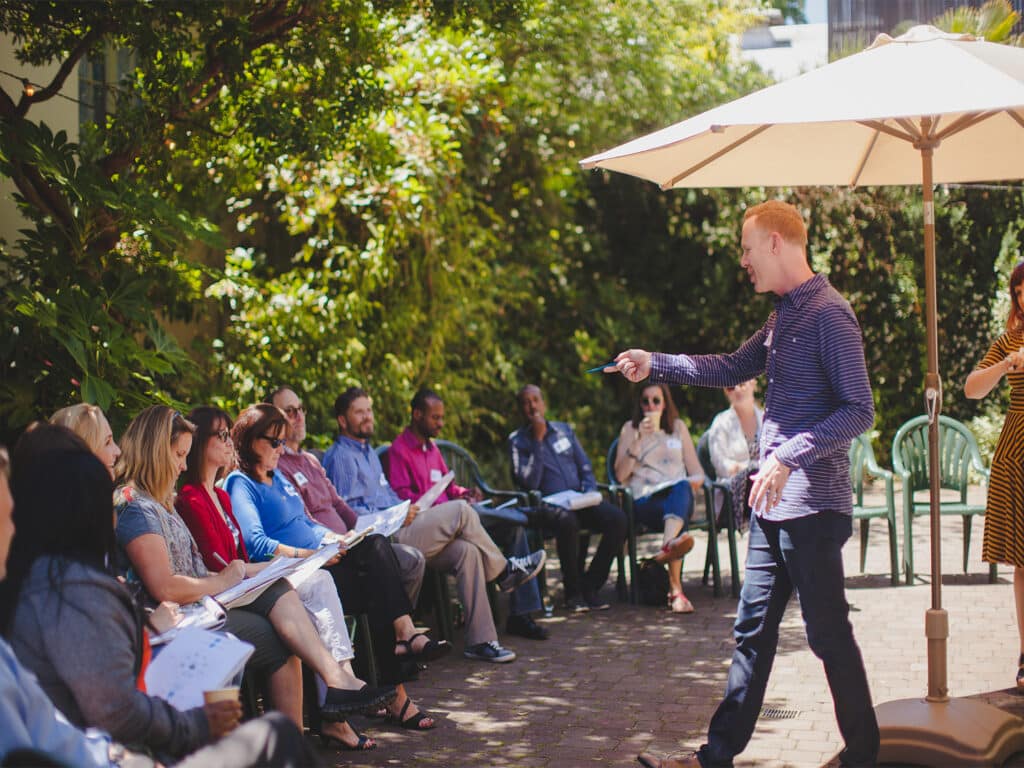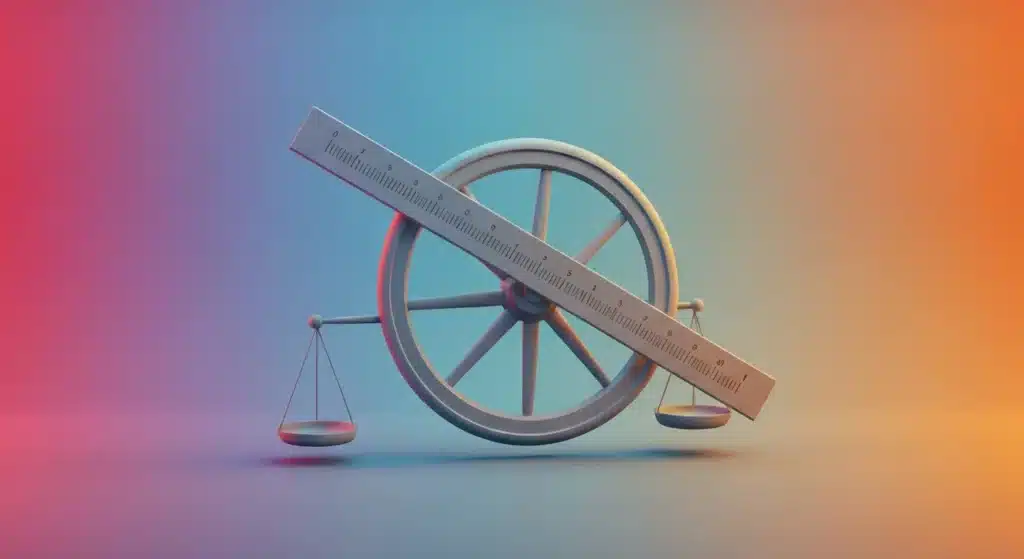Listen to the Podcast
Be Curious!
Raj Anderson and guest experts answer your coaching questions each week!
In Coaching to Flourish Season 3 Episode 5 our host CTEDU Assessor and Master Coach Raj Anderson and Coach Training EDU Founder and Master Coach John Andrew Williams discuss how to leverage current trending customer interests/activities and speaking gigs in growing your coaching practice.
Get the Answers to These Coaching Questions


Live Transcript (unedited)
[John Andrew Williams] Hi Raj, how are you?
[Raj Anderson] I’m great! Thanks John. Yeah, welcome everyone to Coaching to Flourish podcast and we’ve got some exciting questions to answer for you. Yeah. I’m also excited to hear from you, John, cuz you’ve been working on a new project, haven’t you?
[John Andrew Williams] Right, right. And today’s the very first one. So we posted our very first Let’s Life Coach video on YouTube, and we’ll put it in our blog and we’ll look at it. But basically what I’m doing is taking a clip from Ted Talks, commencement speeches, uh, you know, researchers talking about their research, uh, educators who are on the cutting edge, people in the business world who are doing amazing things.
Basically some of the, the coolest things happening and then breaking them down into, you know, looking at a lot of the etymology, the, the words. Uh, really digging deep into just maybe a couple sentences and then coming up with three coaching questions that are built off of the, the content. So we did our first one today.
It’s with Oprah. She gave a commencement speech at, uh, Spelman College in 2012. And it’s just fun. I mean, it’s just, it’s a really amazing talk. I recommend listening to the whole thing, and I’m having a ball making them. Like every, after every video. I think this is, yeah, this is, it’s just fun. And so I’m getting more energy from it.
It’s good. I’m, I’m been getting it into the research again in a really cool way and feeling like I’m producing something, it’s a good thing for me. So we have, uh, we’re gonna do one a day, and the idea is that you can build it into your morning routine. So, uh, you can watch the video and use the questions as prompts for morning pages, which is the design of them.
And we’re gonna see, uh, if, if we can keep the one a day pace, which I’m pretty sure we can. I already have eight videos, uh, already recorded, so I’m a week ahead, which is nice. Usually that’s not the case. So, yeah.
[Raj Anderson] So John, are these videos for anyone who wants to be intentional on how they start their day?
[John Andrew Williams] Yes. Yes. It’s like for the, for the, the one that we did today was Oprah. She has this idea, you know, she’s not after like what, what she’s, what she’s currently aiming for in her life isn’t, you know, not necessarily to make an impact or have a legacy. Those things are nice, but what she’s really aiming for is the truest, highest expression of self and that’s amazing.
And so I go into it. I’m not gonna, you know, I go into it a little bit, but the idea, it’s such a, it’s such a powerful idea because it gets people out of thinking, I will be okay if I accomplish this, or my life will be meaningful if I do this. It you, it eliminates that future if, and it brings it really close to the present moment where you’re thinking, okay, like what is my truest, highest expression of self right here, right now? Or in the next five minutes or in the next 10 minutes?
Uh, it’s, it, it’s immediately flow inducing when you think of, you know, and then you go in, you know, then you go into Maslov’s hierarchy and needs and, and the myths around that, the understanding of that. I’ll make some more videos around there. But the main idea is that Maslov never actually used a triangle, right?
You know, you think of the triangle thing, you never actually used one. And in fact, the stages is not, it’s not that one has to complete all stage one before you get to stage two. It’s much more fluid than that. So, it’s, I’m loving this project one, I’m loving the project. If you’re into it, uh, I’d love to have people, you know, comments on board and yeah, I’m just really psyched.
[Raj Anderson] Look, I’m curious, John, how do you think coaches can use these videos with their clients?
[John Andrew Williams] Yeah. I’m always curious about how can we coachify a certain mode of communication, you know, like the powerful paragraphs which are gonna be built off the videos. The idea is like, how can you mimic that coaching question?
Because as a coach, like right, we, we ask questions. And when you, and you know, best practice for a coach is to ask maybe one question after a client’s talking. But if it’s only one person talking, how do you create, uh, an insight rich environment that a, that a question can then mimic what it’s like to be in a coaching session.
So that’s the idea is how do we mimic this? And I think as a coach listening to these, I think there’s going to be a lot of op-, I mean, there’s a lot of opportunities to see the kind of coaching questions I’m asking and then use them, you know, with clients.
[Raj Anderson] Fantastic. Okay, thank you John. So I’m excited to listen and start my day with intention.
I’ll let everyone know once I, I’ve listened and then they’ll be borrowed insight with those questions that you’re gonna put in there. Um, okay. So I’m gonna switch gear to a question I have for you, John, from our audience. It’s a bit of a long one, so I’m gonna go slowly with the question. Yeah. It’s around themes for 2023.
So personal growth and development, the need for autonomy and the desire for career change are considered three key consumer activities that will be important in 2023. How can I leverage this knowledge in building my coaching business?
[John Andrew Williams] Wow. What are those three things again?
[Raj Anderson] So three areas, personal growth and development, autonomy and career change.
[John Andrew Williams] Wow. That’s an amazing question.
[Raj Anderson] It is.
[John Andrew Williams] I wonder, I, I think, okay, so whoever put that question together. Thank you. Uh, I think, um, well, all right. Well, the same thinking that put that question together, uh, I mean, it feels super logical, super, like thoroughly researched and just really strong.
And I think when, when you’re trying to market coaching, those, those three character traits are elements are also useful to move into. Like, you know, same, same thing. I don’t know from a coach’s standpoint, like from a building a practice standpoint, I don’t know how useful it is to think in the global, you know, global trends as much as it is to think realistically, a full-time coach can only have in their practice maybe 30 to 40 current clients before you’re at capacity.
I know for me, at my, my peak, I think it was in the low forties, uh, you know, current clients, and, that was a lot. When you’re thinking I can only really reach or work with 40 people at any one time, uh, these, your specialty is much more important than thinking in terms of global trends, and the awareness of coaching has increased so much over the past couple years that you’re no longer having to explain what is coaching, what is life coaching.
It’s more around, have you accurately identified your audience and have you accurately identified their biggest pain points. This is the most important thing in marketing coaching, and what’s hard about marketing coaching, and delivering coaching, is that the marketing of it focuses on the pain points, but the delivery of coaching almost has to focus completely on the client’s inner growth and inner world.
So you, you’re not, if you’re coaching the pain points, then you’re, you’re mostly giving advice and problem-solution-hunting, which is not best practice. I mean, the coaching process breaks down what we we’re, what we’re really doing in the coaching process is we’re trying to use the challenge as a, a foil for insights.
You know, you need something to push against. It’s almost like you, you literally at a playground, you need the obstacles in the playground in order to play. We need these challenges and obstacles in order to gain insights. So I think it’s much more, just pick one of those, and then riff on it. You know, pick, pick, uh, personal growth or career change.
I’m a career change coach, and when people are looking to change careers, these are the three biggest things. These are the three biggest challenges that they have. And usually at the root of all, like all humans usually have a, you know, the biggest challenge is, am I worthy? Am I worth it?
I mean it’s, it’s, it’s wild when you start getting into it. But yeah, I mean the, the thing I’ve been playing with too, in terms of coaching and, you know, getting into this idea is, is it’s safe to look inside.
And I think sometimes it feels not safe, and I think it comes up with, “I’m not enough,” and coaching allows people to, to uh, to look inside. And so I think one of the biggest competitors that, that coaches have when establishing a coaching business is not other coaches. It’s indifference. It’s thinking, I don’t really need a coach to do what I’m doing right now.
It’s like, same thing with personal trainers. Personal trainers can be expensive. But if you have one, chances are you’re more likely to go to the gym. You’re gonna get, you know, a better workout. You might pick up things and then you, you’re probably going to go to the gym more often, even without that personal trainer.
The same with coaches. It can be expensive. It’s definitely a time and energy investment. But I’ve lived the un-coached life and I’ve lived the coached-life. The coached-life. It’s just different. So coaching as a fundamental field, absolutely 100% works. The, the bigger challenge if you’re trying to establish this is, can you accurately identify your target audience?
So I would focus more on that rather, rather than the global trends. But I would still use the global trends to, you know, it doesn’t hurt.
[Raj Anderson] Yeah.
[John Andrew Williams] But it’s not the main focus.
[Raj Anderson] And, and maybe those global trends were something that someone is passionate about anyway. So it could be an opportunity.
(SHORT AUDIO ISSUE)
[Raj Anderson] Alright, great. So yeah, I was just sharing John around. So one of the things you shared was perhaps, identify if this could be a niche for you. Like one of these areas could be a niche, couldn’t they? And then you might wanna think on speaking on them or writing articles or blogs. I mean, for me, you know, a lot of my bread and butter is around personal growth.
It’s a growth mindset with execs and leadership, you know, so that is my niche in that area. And one of the things I, um, talk a lot about is the impact of that. You know, there’s, so, there’s a lot of statistics. There’s data out there. I like to share articles. I actually shared an article last week on why all leaders should actually be coaches and why they should have coaching skills.
So I, I think it’s sharing those resources, talking about it and, and thinking about what each of these area mean to you personally, don’t they? I mean, I always love when John says, you know, thinking about the coached-life versus the un-coached life. And I’ve said it before, I, I can’t even imagine my life now without coaching and I’m a completely different person. And I wouldn’t be doing these. I wouldn’t be sitting here with you right now, John, because I wouldn’t have had the confidence to be in this.
[John Andrew Williams] I just started working with a new coach about two months ago, and, uh, my current coach, or my previous coach, he, he got a full-time position and he decided to take it. And so there were a couple months I went without being coached, and you can coast on it for sure, you know, especially having so much knowledge, but then getting back into coaching with a new coach too, especially it forces you to, like, say out loud and reevaluate. Okay, this is where I’m at. This is where you are. And then interesting things is when different decisions are made because of coaching sessions. That is so that, that is really, that is really interesting. And when that happens, then it, there starts to become a little bit of a, it’s a, it’s a upward spiral.
You know, you start to make one small decision, you get a little bit of a different, um, outcome. That outcome puts you in a different spot. And it might not be like a huge life-changing thing, but let’s say it just changes by two or three degrees, but those two or three degrees make a difference and then another two or three degrees, and then six months down the road, you’re in a completely different spot.
Uh, it’s, yeah, I mean, just watching it unfold, I mean, it’s almost, I mean, it should not be surprising for me anymore. I mean, I’ve been in the coaching world now for what, almost two decades. My goodness. It’s, yeah, it’s wild.
[Raj Anderson] Thanks John. Okay. Hopefully you can hear me.
[John Andrew Williams] Yes. It’s on my end. I dunno what those, those headphones decided to die. They’re like, oh, the earbuds are done.
Raj Anderson] Um, okay, A connected question to this then. Uh, I’m a new coach. I want to start doing speaking gigs. Where do I start?
[John Andrew Williams] Um, looking for pre-formed groups. So looking for groups that are already formed around topics and then asking if you can do, um, basically a free workshop for them.
And the, the key is it needs to be something where you are truly delivering value, not even pitching or presenting your service in any way. Uh, you don’t, yeah, you don’t want to. You can mention it, sure. But it’s more around delivering value. If you deliver value, people are going to appreciate that and they will hire you.
Yeah, I, yeah, pre-formed groups and it’s a lot, I mean that that’s a lot of work. It’s not, I mean I viewed that when I was establishing my own practice, like that was the very best, that was the hardest thing to do, but it was also the very best use of my time. And when you’re think like, it’s also helpful to think of it in terms of, what is your revenue generating activity? And your revenue generating activity are those that put you in touch with more potential clients and conversations with those potential clients and delivering amazing service to the clients you have, because then they refer you to other people. So those are the three major revenue generating activities, uh, other things that need to happen. I mean, those are all also important, like, you know, making sure your books are in order, all those kinds of things.
But yeah, no, it’s, it’s focusing on the re revenue generating activities. That is one of them. It is the hardest one I think. So you have to give yourself a lot of grace. You have to do lots of asks, lots of research, lots of searching, but it’s totally worth it.
[Raj Anderson] Yeah, absolutely. So it’s volunteering, maybe volunteering locally.
Um, the question I would add for anyone who’s considering this is, why is speaking important to you as part of your business and as part of coaching? Because also know plenty of coaches who are just coaches, they don’t speak. They might facilitate a webinar or they might, uh, do sessions that include coaching.
So what does speaking mean? Why is it important? What life purpose does that connect to? I know a lot of people want to write books, so if you are writing a book, maybe that would connect to speaking.
Words of wisdom from me, from having done this, that and the other. Don’t try to do it all. And don’t think that, you don’t kind of put yourself in a situation where you feel that you have to be perfect and you have to know everything and answer all questions.
And I think that’s where even thinking about your niche is important or keeping it simple as well. Sometimes we can over complicate these things and I know when I first started out and I was invited to speak and I would put so much pressure on what I thought I needed to say and sometimes a lot of just my learning or reminding people of key points was enough.
So I, I would go back to that question of why is speaking important to you in your business?
[John Andrew Williams] Right, right. For me, it was my primary vehicle for getting clients and I loved it. I enjoy it. Um, I still do. Uh, and going back, if I were, the thing I’ve learned really quickly is to net-, the most effective way to get those speaking engagements is to network.
Yeah. And if you can, yeah, I would start with the people, you know, like, you know, find the list, find the groups of people you want to, you want to connect with. Then ask yourself, who do I know who’s connected to groups like that. The very hardest is your first handful, like your first five, you know, two to five different gigs is the hardest.
Once you get those, and if you can record any pieces of those or invite other people to those, or tell the person, you know, like the organizer of one group, like, look, I’ve done this. Uh, this is the response. This is what it was. It’s, it’s an exponential. . It’s an exponential game where the first one takes maybe 10, you know, units of energy. The second one takes another 10. The third one takes maybe six. Then you know, 6, 5, 4, and then pretty soon you have, maybe you’ve given a dozen of these presentations. You can say, Hey, when I was at this presentation, you’re now talking in past tense.
[Raj Anderson] Yeah. So building those testimonies, um, and also your portfolio.
You know, if, if it’s something that you love and you’re excited about, as you said, get someone to record you or record those webinars or, you know, this gift that I’ve been given from Coach Training EDU with John, now I’m on hundreds of videos, which I may not have done before, so I haven’t portfolio while I speak.
[John Andrew Williams] That’s alright. I used to give, I used to go to libraries like, you know, the other way to do is try to get groups together. You know, you go to a library and you say, Hey, I’m giving a talk on, uh, let’s say, like teenage motivation. And then, uh, the library would put it out there. Maybe I would get maybe two to four people.
Uh, there was one to in, in, but I would still run it. I would still do the practice as long as one person showed up, I would still run the, still run whatever I did. And I remember one time there was a, a time when I think two people showed up, but I got four clients. From two parents, cuz they both had multiple children and they were like, yeah, let’s do this.
Like this is amazing. Uh, it might have been my very best. And I remember I gave one talk to a, a school. There was like maybe 80 people there and I got zero from it and I was beating myself up from like so much like, and then from that one though, I got maybe three other speaking gigs. And then one client eventually, and then another one.
And then they came, they came trickling in. You, it is hard to, you just can’t tell. Like you just, it’s almost like rinse and repeat. Don’t think about it. Just go.
[Raj Anderson] Yeah. Yeah. Surprising where you can get referrals from and, you know, you’ve triggered my memory now. I, I volunteered at like a local gym and a spa, old people’s home. I volunteered in lots of different places and different audiences. I was trying to figure it out and, uh. . .
[John Andrew Williams] That’s so right. Yeah. That’s cool.
[Raj Anderson] What words of wisdom do you have, um, John, for people who might be nervous about their first speaking gig?
[John Andrew Williams] I don’t know any other way to do it, than just do it.
Just do it, you know, just get out there and do it. I think what helped me a lot, and I really am, I, I just enjoy it. So I don’t have that same nervousness when, so I’m probably the worst person to ask for that.
The only thing I can think of is, uh, is, is to, is to really get clear on why, like, why are you doing this? And if like, uh, why are you doing this in the first place? You know, remember why you started, and it’s not for you, it’s for the sake of the people there. That helps me a lot.
Uh, I took a standup comedy class once years ago.
I’ve told this story, right? I, I, I, signed up for Portland’s funniest person. This is back in 2016 and I did six minutes stand up. It was amazing. It was the one of the biggest thrills of my, my life and, uh, I wanna get back into it, but down the road, I mean busy stuff. However, that, before that I was a nervous wreck.
I was like, what am I doing? These jokes aren’t gonna work. The first three minutes was excruciating. I mean, it’s just all of it for that. I just, you just gotta go do it. There’s no other way just to go out and just do it. He just embraced the nerves.
[Raj Anderson] That’s super courageous. I mean, that sounds pretty terrifying to me to stand up as a standup comedian.
[John Andrew Williams] Yeah. Yeah. It’s, it’s, it’s a great practice. I, I, I highly recommend it, but do it with a class. Like if, you know, you take a class with it, same idea with speaking, you know, take a class. Um, um, you know, I’m putting these YouTubes, these YouTube videos together. I went out and found a coach specifically for helping me craft the, the videos and, uh, you know, separate from, um, you know, separate from just general life coach. Find, find the coach. Do it, and he, you know, he made them better.
He totally made them better.
[Raj Anderson] Yeah. You might wanna get a speaking coach or a personal brand or presence coach.
[John Andrew Williams] Yep. Yes.
[Raj Anderson] Coaches for all kinds of things out there, isn’t there?
[John Andrew Williams] Mm-hmm. . And then use it cuz I mean, the thing is I you, I learned so much about myself from speaking. And then watching myself is painful. It’s so painful, but there’s so much growth in it. Watching myself make these videos, like, oof, like, you know, it’s like, ah, really? That’s, but then I watch them and then I get so much from it. And then there’s you, it’s almost like, you know, you know, you’re on the right path if the work itself provides energy, like provides excitement and it’s, it’s almost like having, there’s a balance point between hope for the future and gratitude for the present. And being able to, to go between both of those with ease is, is I think what I’ve learned in, in business building. Sometimes, it’s really useful to make that future place you’re going the most important thing larger than any present obstacle.
But then when you’re in the present obstacles, like even being thankful for those is, is, uh, is it’s a gift. And for all of you who are listening, playing along, um, being in the field – Thank you. I mean, we are making the world a kinder, more empathetic, more empowered place. So yeah, thanks to the community.
Thanks everyone.
[Raj Anderson] Absolutely. Thank you everyone. Thanks John, and we’ll see you next week.
[John Andrew Williams] See you next week.
[Raj Anderson] [John Andrew Williams] Bye.
Join us each Tuesday Live on Facebook at 11:30 AM PST | 2:30 PM EST.
The Coaching to Flourish podcast is currently available on Spotify, Apple, Amazon, Overcast, Pocket Casts, Radio Public and Anchor.




